Eco-Challenge Fiji 10 - Porters and Waterfalls
Eco-Challenge Fiji:
World’s Toughest Race
Sunday, September 15th
Spoilers: Team East Wind, Team Bend Racing
After much-needed foot care, Team US Military walked up to the village marking the beginning of a section where teams were allowed to hire porters to carry their bags and act as guides to the next leg. Jesse negotiated porters while the rest of the team purchased food from the temporary stand the villagers had set up. The team was famished and everything looked so good that nobody stopped to think about the possibility of getting sick from eating it. The team spent $50 Fijian ($25 USD) on food, hired a porter, retrieved the River Stage medallion from the village chieftain in the center of the village, and were off.
At first the members of Team US Military were worried that their porter might not have been able to keep up. This fear was completely unfounded as the opposite was true--they were hard-pressed to keep pace with him. He carried Caitlin’s bag and moved swiftly on the trails from village to village. This was his third team he had taken, about a two hour round trip for him. The guide was wearing rubber boots, but eventually kicked them off under a tree and commenced walking barefoot through the mud, rocks, and sticks.
It was unbelievable how tough the Fijian feet are. Everyone goes barefoot everywhere, even across extremely rocky river crossings. The group was also joined by the guide’s nine year old brother who scampered along effortlessly. In conversation with him, the team learned that their guide traveled one hour to this village for church on Sundays.
The guided group went through many villages and were greeted with, “Bula!" and handshakes along the way. For every village they came to, it was not enough to just say ‘Bula’ once. Each Fijian expected you to individually answer them back, so if nine kids were greeting a passer-by with ‘Bula!’, the traveler had to say it nine times. And usually it was a two- or three-time ‘Bula’ exchange. The racers of Team US Military said ‘Bula!’ a number of times throughout our journey, as well as ‘Vinaka!’ (Fijian for ‘thank you’).
By the time Team US Military arrived at the drop off point, night was falling. The porter explained that the team needed to take the road to the next village. Initially the team had decided against using another porter and some local boys lead them to the road. Passing by their school, the boys explained they had no school today because it was Sunday. They showed the military team to the road and the racers were on their way.
Fijian roads often included “Irish Bridges”, which proved quite dangerous during the nighttime mountain biking stretches along the road.
Spangler’s feet were hurting, and he was falling asleep while walking. A porter walked by with a horse, and the team decided that having the horse carry their loads was in their best interest after all, as we had a long way to go. They also learned all the other teams had done the same, so resolved they might as well. They loaded the horse with their bags and continued up the road.
Team US Military was really slowing down at this point and Team Ireland AR once again caught up. Mark Lattanzi had found the team’s lost guidebook by the river. Pulling up to the next village together around midnight, there were several other teams and a flurry of activity awaiting. Some teams were negotiating porters and guides for the next leg while others were being invited inside for tea. One look at Spangler told Joshua that the team needed to sleep, so they were quickly ushered off into a quiet home.
After removing socks and shoes, the team members quickly realized their hosts had mattresses and pillows laid out in this one room home for the guests of honor. Jesse and Spangler immediately fell asleep.
Partly loopy from his lack of sleep, he stifled the giggles as best as he could and instead made a game of pretending to fall asleep peacefully, even though he was still wide awake at the thought of the strangers around him watching his every chest rise and fall. His thoughts before he finally gave into sleep were, “Where else would this craziness happen?”
There were about fifteen people in the home staring at Caitlin and Joshua as they laid down. After agreeing on one hour of sleep, Caitlin set the alarm on the watch. Caitlin, too weary and out of it to care, passed out and vaguely remember someone putting a blanket on her. Joshua tried not to laugh at the severely awkward circumstances in which he currently found himself--that of falling asleep to a hovering audience of women and children. Partly loopy from his lack of sleep, he stifled the giggles as best as he could and instead made a game of pretending to fall asleep peacefully, even though he was still wide awake at the thought of the strangers around him watching his every chest rise and fall. His thoughts before he finally gave into sleep were, “Where else would this craziness happen?” He reveled in the moment for another delightfully weird tik tok, then passed out.
Caitlin (and the rest of the team) slept through the alarm. The altimeter watches that were supplied by Eco-Challenge Fiji race management allowed for setting one and only one alarm--which beeped gently once a second for five seconds before turning off. It was a cruel joke. Caitlin woke up after about one and a half hours and negotiated how to proceed with Joshua. They decided on one more hour because there was still a need for sleep. The team again slept through the alarm and ended up waking after three and a half hours total.
It was an eternity of sleep in Eco-Challenge Fiji terms. Time to go. The team’s hosts made some lemon tea and flour dough rolls for breakfast. Jesse and Spangler had begun to have early symptoms of diarrhea after our last Fijian food stop, so they were wary of the food. The team negotiated with the Fijians for another guide and porter, and departed.
The altimeter watches that were supplied by Eco-Challenge Fiji race management allowed for setting one and only one alarm--which beeped gently once a second for five seconds before turning off. It was a cruel joke.
The rest of the trek into Camp 3 was rather uneventful. It was long, and it was amazing how long the guide went without food or water. The team probably walked for four to five hours. Only once did Caitlin see him bend down and lap up a few sips of water from a stream. Meanwhile, she and her teammates were eating and guzzling water like crazy. Jesse and Spangler were now experiencing full blown diarrhea and were having to stop regularly. Not good.
A Brazilian climber ascends Vuwa Falls.
As the sun came up, Team US Military passed many different villages and were greeted by ‘Bula!’s and handshakes along the way. They were even invited to meet the chief of one village, but declined—they were tired and anxious to get into camp. They finally walked into camp mid-morning on the fifth day.
It was a beautiful day and the military team finally seemed to have a break from the rain. But with it came the muggy heat. Kevin had more than made up for his Camp 2 blunder, with steaming homemade spaghetti ready and waiting for his team of racers. They stayed in Camp 2 for about two hours and then set off on their trek to the Vuwa Falls waterfall climb.
At camp, the team had learned that two teams—Team East Wind and Team Bend Racing--had trekked up the wrong river to the waterfall—a costly ten-hour mistake for each. The experienced adventure racers of Team Bend Racing would recover. Unfortunately, the equally experienced Japanese of Team East Wind would not, eventually having to be evacuated after the waterfall climb.
As Team US Military was heading out of town, Caitlin looked over at Jesse and asked if he had his climbing helmet. He did not, and had to run back to camp to retrieve it. That would have sucked.
Helmet retrieved, some boys from the local village joined the team as they began the trek. Joshua and Jesse firmly told the boys that it was against the rules to pay them to guide the team (teams were only allowed guides/porters on the previous section), but they chose to tag along anyway. The local boys are very adept at clambering over rocks and navigating the multitude of river crossings—it was very impressive. The team learned that they had never been to Suva or Nadi, but that they wanted to visit the city. The children also explained that they went to the waterfall frequently, which is impressive as it is about a five hour hike up the river from the village. The boys were good company and accompanied Team US Military for many hours along the way.
Along the way, the team passed Team East Wind, who still seemed to be reeling from their navigation mishap. Trekking up the river is extremely tedious. The rocks were very slippery, and the racers had to be constantly careful not to fall.
At one point Team US Military came within visual distance of Team Scouts Australia. Joshua insisted on stopping right then and there on the river to put on climbing harnesses so that the team could pass the Aussies on the ropes when they both arrived at the transition. His three teammates thought this ridiculous as the team still had more than an hour to go before arriving at the transition, but knowing that it would take as much time to catch them after the stop, Joshua would not be deterred. So Team US Military climbed the last one and a half hours up to the ropes in their harnesses. Once they arrived at the ropes, the plan was to present themselves to the Eco-Challenge ropes management team as fully equipped to ascend the ropes and move ahead of the Aussies as they would inevitably still be preparing their equipment for the 1000-foot ascent up Vuwa Falls. It did not go as planned. Upon arrival, Joshua moved ahead and jumped in with the other team. His teammates remained behind to attend to nutrition and mentally prepare. The result was that the two teams were interspersed on the ropes. Jesse, who was the least experienced with ropes on the team, was not happy with the situation--the initial plan was to have Joshua make sure each of his teammates were set up correctly because of his climbing background. In the moment, Joshua was hyper-focused on the tactical move so much that he forgot his role in preparing his teammates for the climb, a lapse for which he would later apologize.
It was this moment and another similar one later that gave Jesse supreme confidence in the team’s ability to finish.
For Jesse, this was the second big test for the team (the first being the hole in their Camakau). Jesse was really worked up about the decision to suit up early and risk injury while climbing the boulders toward Vuwa Falls. When confronted, Joshua was contrite and took full responsibility. It was this moment and another similar one later that gave Jesse supreme confidence in the team’s ability to finish. So many teams would self-destruct with in-fighting, and since the members of Team US Military had little previous race experience with each other, mistakes like Joshua’s could have easily been the catalyst for their downfall. Joshua shifted from being a more directive leader during the preparation for and early stages of the Eco-Challenge Fiji to a collaborative one. His leadership shift in turn shifted the whole dynamic of the team, greatly enhancing the experience and the team's chances of finishing The World’s Toughest Race.
Caitlin started behind Joshua while Jesse and Spangler took some time to get oriented before starting. Caitlin climbed pretty quickly and had two mishaps on the way up. During one, she ended up falling into a pool of water about eight feet below her. It took her awhile to get out of it and recover from the fall. The next mishap arose when she was climbing a wall and took a crotch shot right on the rock. That hurt a lot. She hung on the ropes for a few minutes to fully recover from that.
It took Caitlin a little over two hours to make the massive ascent up Vuwa Falls. She was surprised to be the first from the team to the top. She grabbed the Highlands Stage medallion from the top and proceeded to attempt some foot care while she awaited the others. Jesse was next, followed by Spangler and finally Joshua. The Eco-Challenge Fiji ropes course team had set up four separate lines to climb, and apparently the fourth was a really crappy line and took Joshua and Spangler forever to get up.
Caitlin Thorn is a guest blogger here. Caitlin Thorn is an accomplished endurance athlete, with numerous accolades as a distance runner, Olympic and half-Ironman distance triathlete, and adventure racer. Caitlin is a Track and Field Division I NCAA All-American, with numerous finishes in the half-marathon and marathon distances. She has been adventure racing for three years and has earned podium finishes at over 6 races and qualified for the 2019 USARA National Championship. Caitlin enjoys world travel and hiking, and when not pursuing outdoor adventure she serves as an active duty officer and engineer in the U.S. Air Force.
Caitlin can be followed via Facebook @caitlin.aub







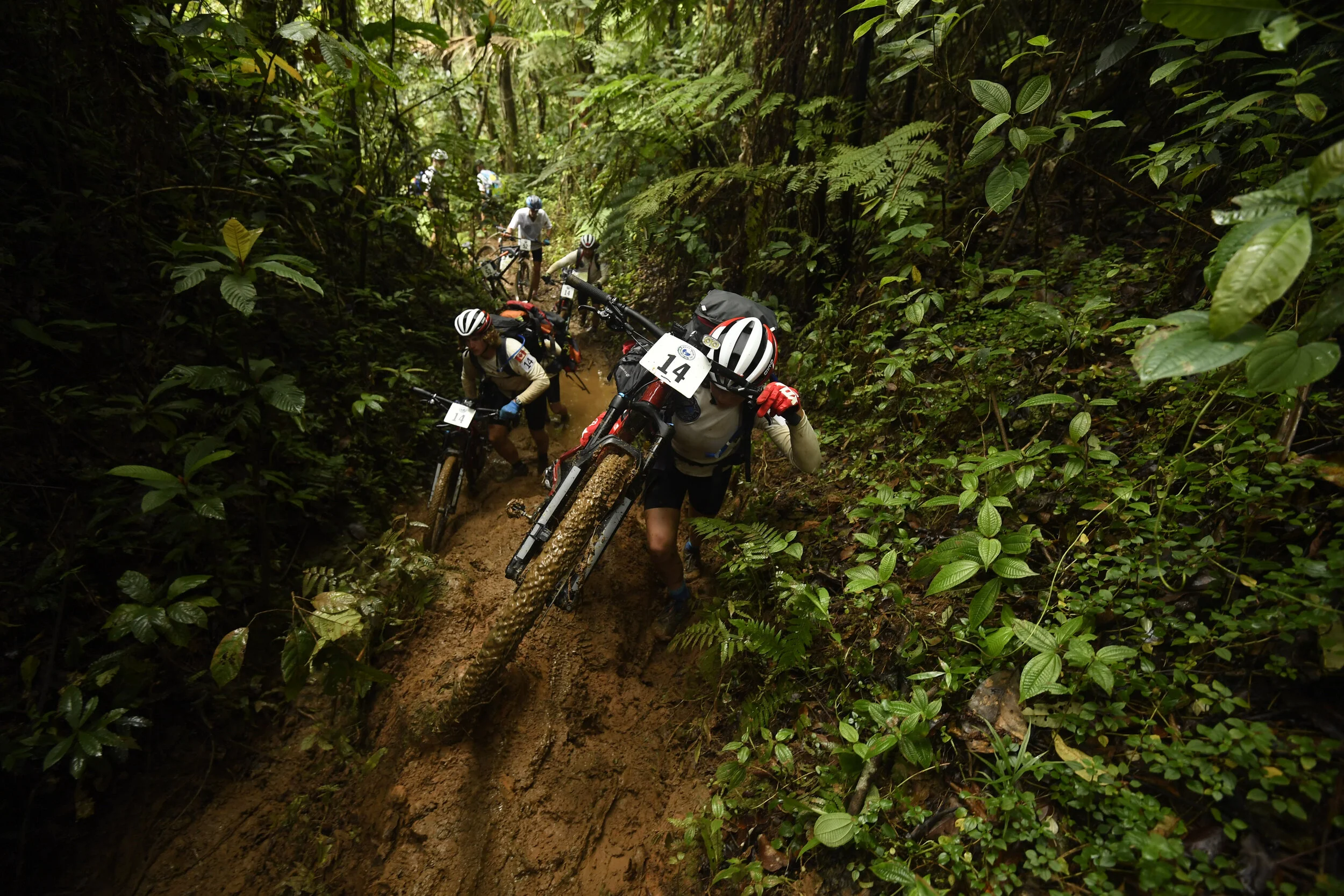



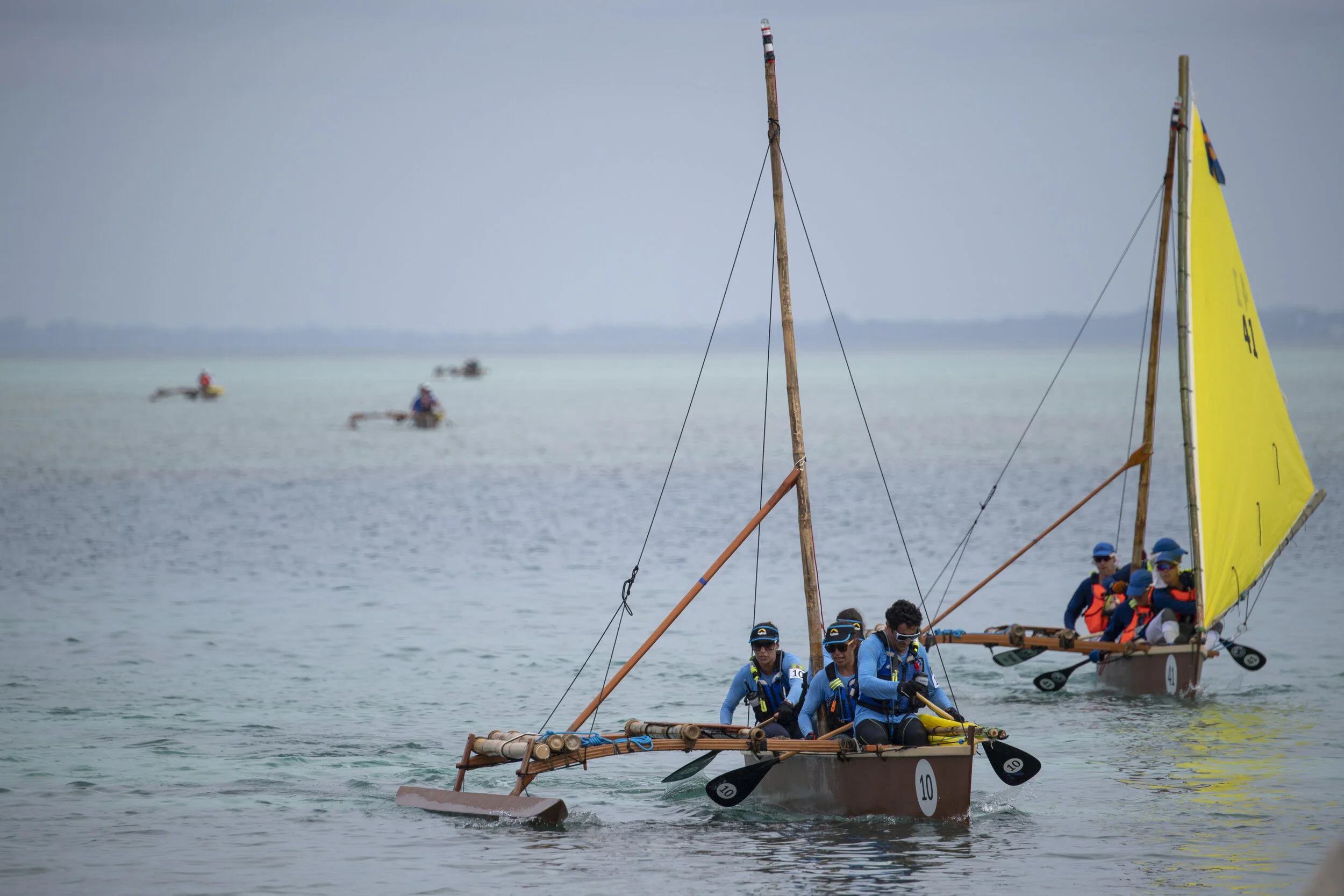
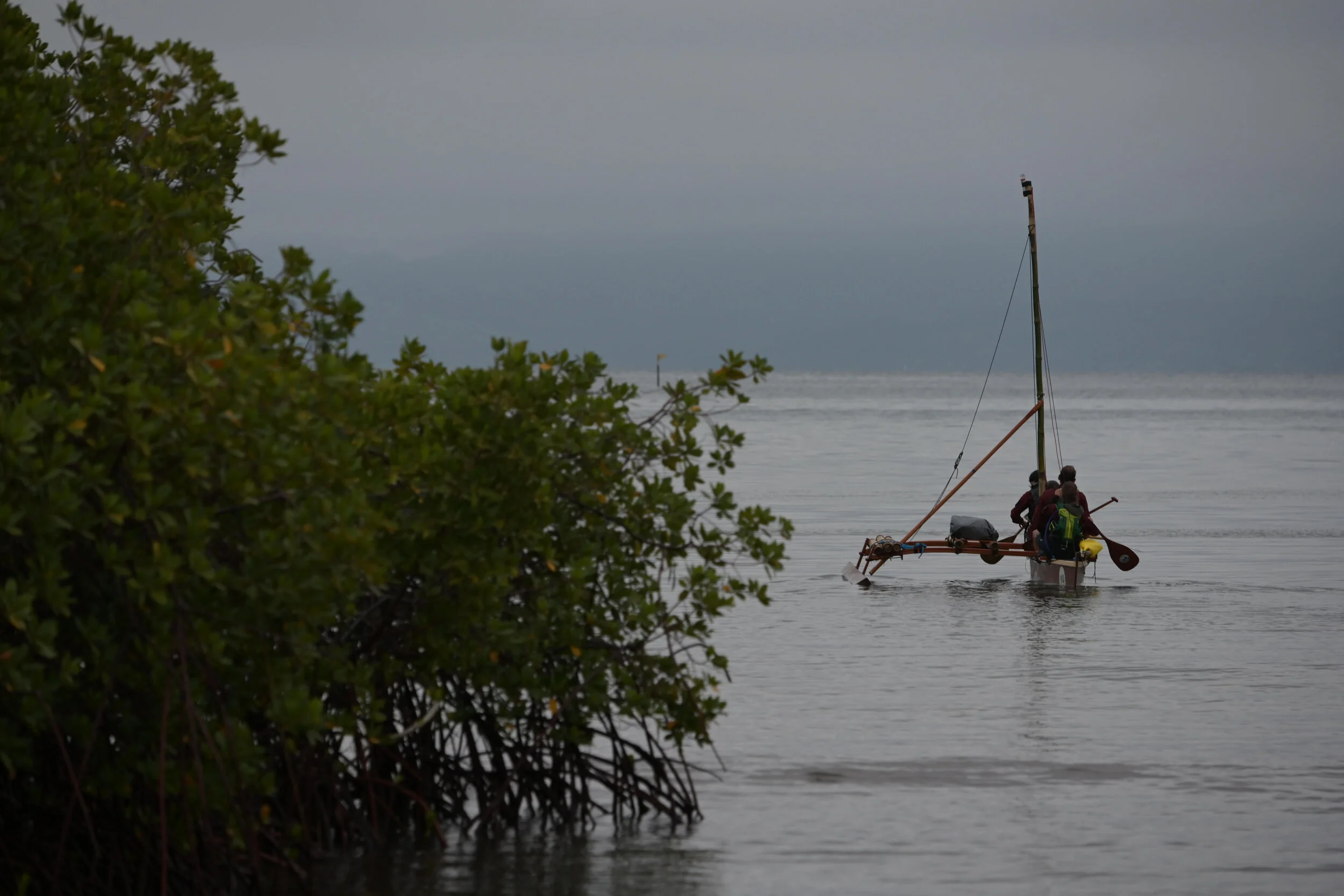
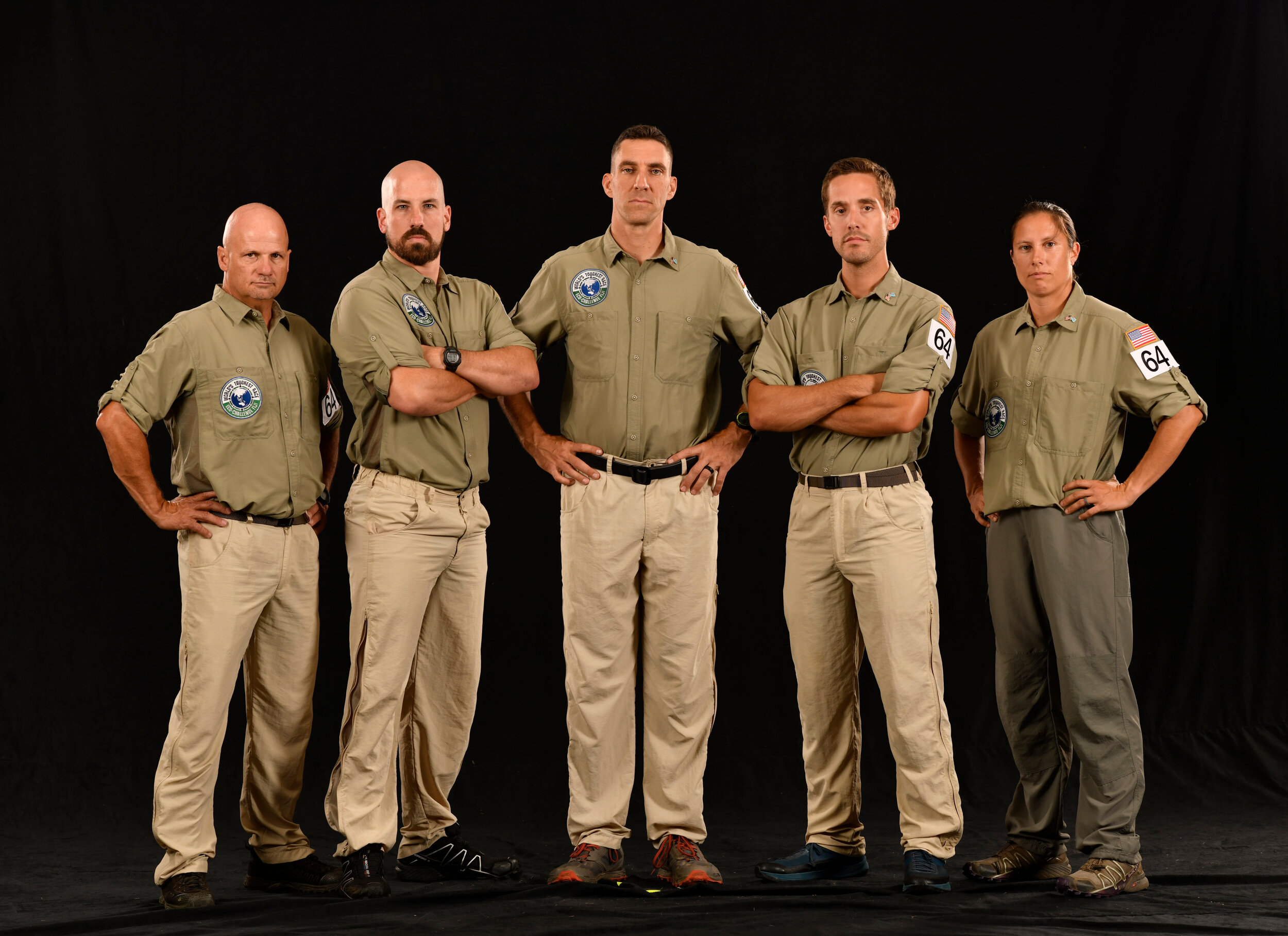

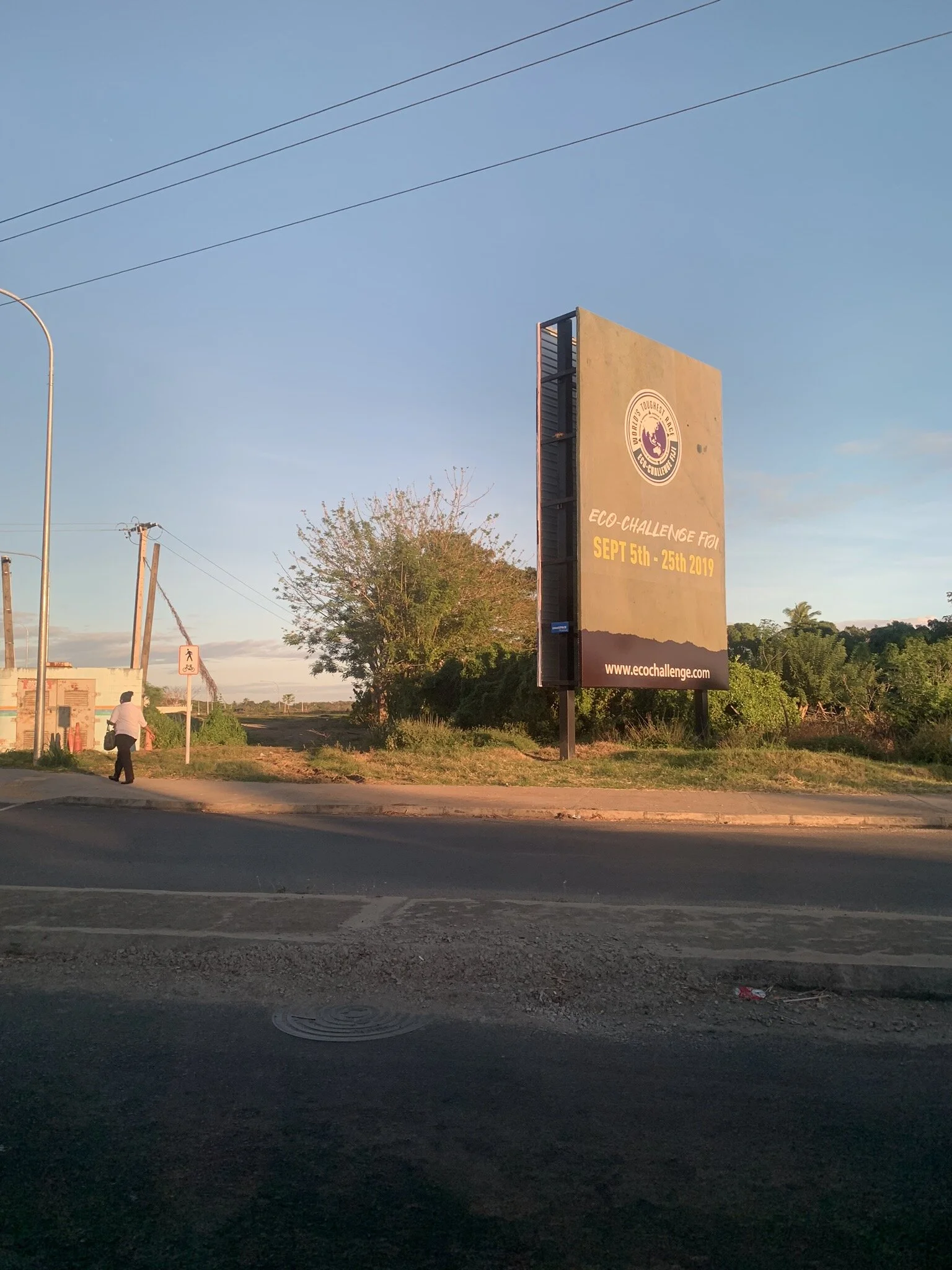
Eco-Challenge Fiji never promised to be an adventure race. Its claim was “The World’s Toughest Race”. Despite the lack of navigational challenges and jungle whacking (which was anticipated to be the hardest part of the race), Eco-Challenge Fiji was still the hardest race the members of Team US Military had ever done. The biking was tough, with incredible elevation gains and losses, and the weather added to the suck factor. This course tested the limits of racers’ mental capacity and their will to finish. Traveling across and along rocky rivers was tedious and broke some of the hardest people down. Continually slipping on rocks and banging up shins and feet tested the bounds of human fortitude and willpower.